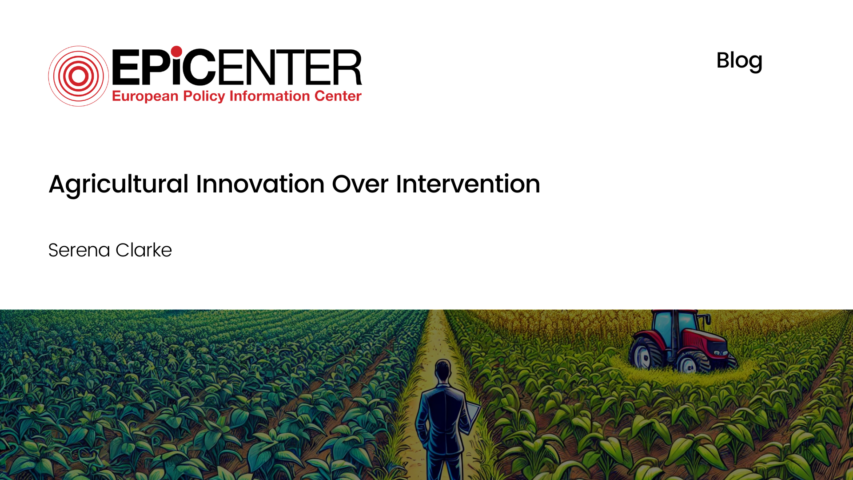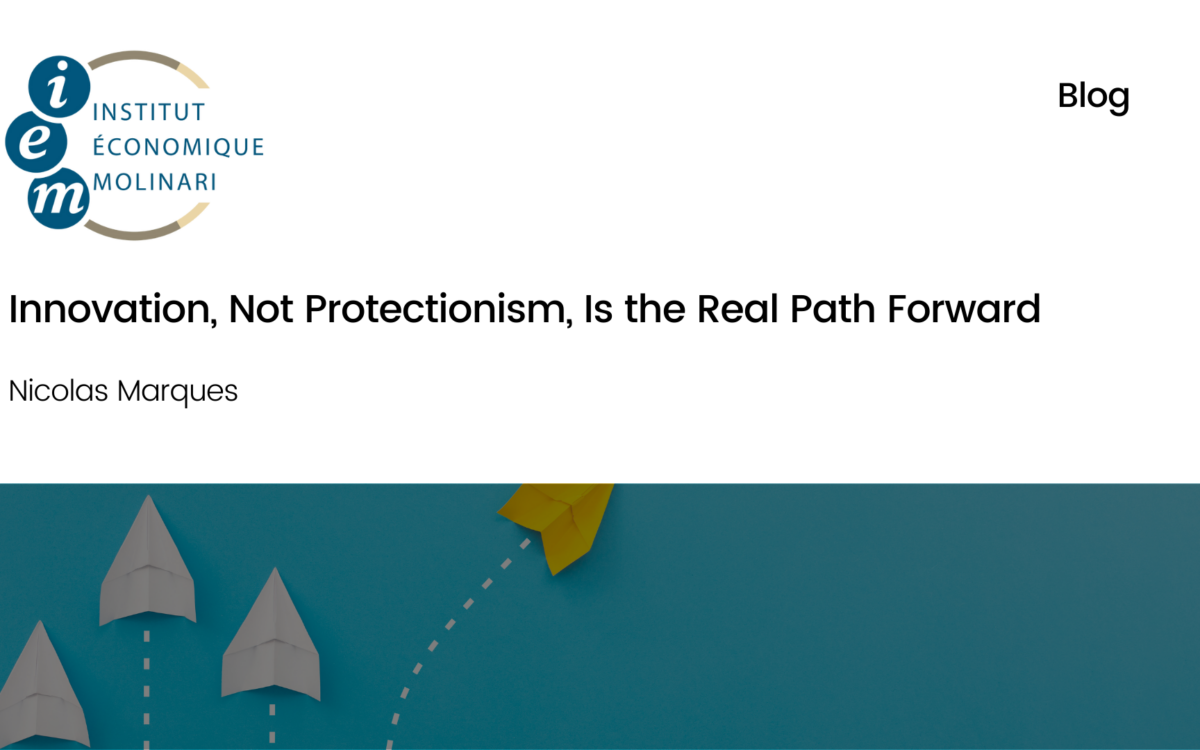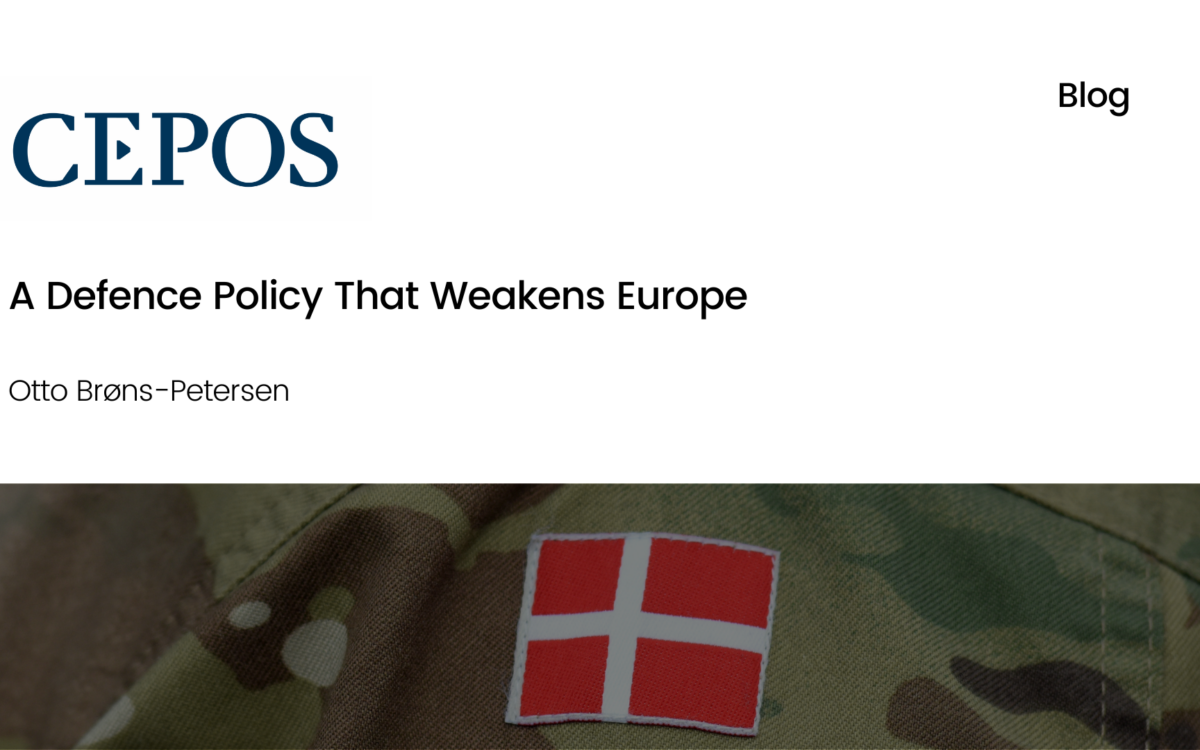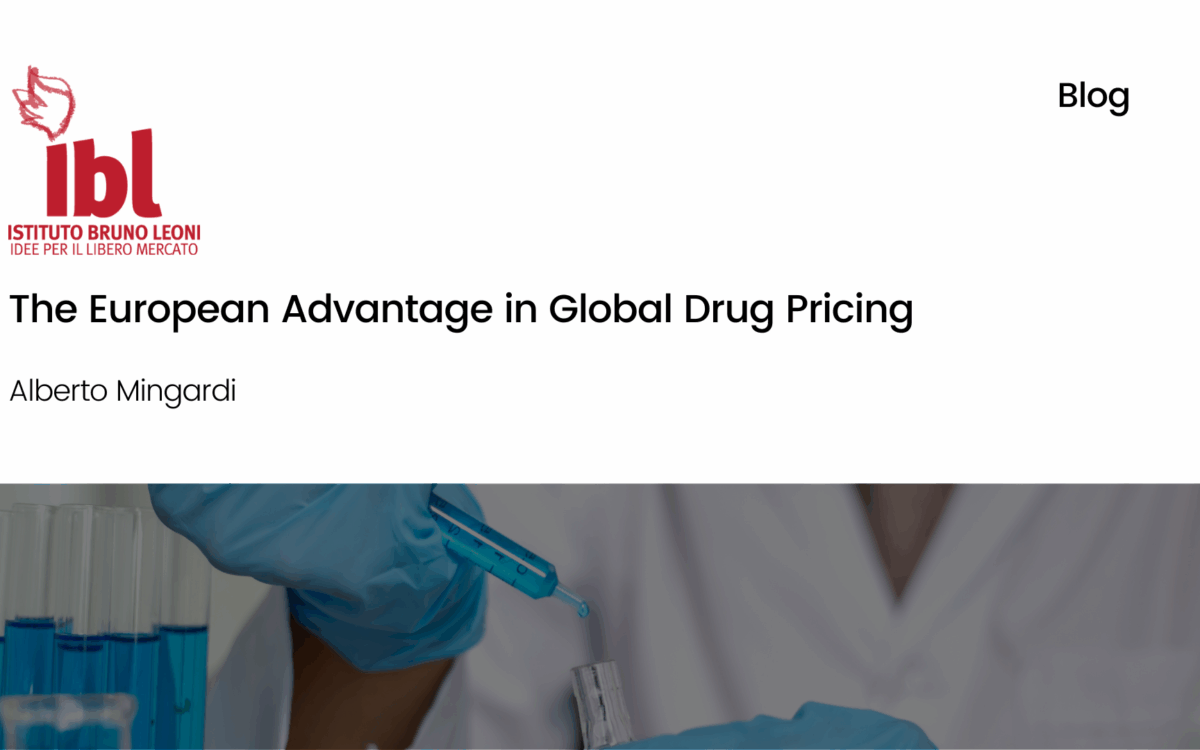Agricultural Innovation Over Intervention

Agricultural Innovation Over Intervention
Serena Clarke // 26 November 2019
There is reason to believe that population growth, natural resource scarcity and climate change will challenge agriculture to deliver food security in the coming decades. The world population is expected to reach 10.5 billion by 2100. The question is, how we can increase our agricultural yields while simultaneously reducing global warming, considering food production is said to be responsible for over one quarter of harmful greenhouse gas emissions.
According to the European Commission, the management of nitrates pollution – emitted by livestock and fertilizers, as well as machinery on farms – is “one of the biggest environmental challenges” for EU countries. For example, in the Netherlands, some 70% of dangerous nitrogen emissions comes from livestock and intensive farming. Ammonia emissions from farming have also steadily increased since 2014 in Austria, Croatia, Germany, Ireland, the Netherlands and Spain according to the European Environment Agency.
Whilst the challenges of climate change have been widely recognised, the wrong approaches have been taken so far, which champion government intervention over innovative solutions. For example, the Liberal Democratic parliamentarian Tjeerd de Groot, from the D66 party, claims that “the balance is completely wrong considering factory farming in the Netherlands contributes less than 1% to the economy.” MPs from D66 believe they can solve its nitrogen crisis by halving the size of the nation’s livestock herd to comply with EU targets, cutting the number of pigs by 6 million and chickens by 50 million.
However, this suggestion has been met with protests from farmers who feel they’re bearing the brunt of efforts to cut nitrogen emissions. On 16th October thousands of tractors rumbled into The Hague, pressing provincial governments to scrap nitrogen rules, imposed in response to the Council of State’s ruling that current methods to deal with nitrogen emissions do not go far enough. Protest leaders argue that rules should be harmonised across the EU, protesting that they are losing their competitive economic position to neighbouring countries such as Belgium and Germany due to these regulations.
Instead, more wide scale rejuvenation of CAP is needed to effectively overcome problems of demand and sustainability. Currently EU agriculture consists of too many small-scale farms, which lack the suitable equipment and investment to foster innovation in their techniques. Therefore, it is no surprise that that the average farm yield is consistently below the attainable yield, the yield that could be achieved under efficient market conditions. This is despite the fact that CAP subsidies amount to nearly €60 billion every year.
To tackle this issue, the EU needs to encourage structural changes to the industry towards fewer, larger scale farms which deliver a superior performance in terms of productivity and incomes, instead of cutting resources and further hindering development.
Benefits of scientific advances can then take root as these larger farms will have the skills and incentives to invest in new technologies. For instance, technologies including genetic modification offer high potential to improve food production by making crops more resistant to drought, heat and pests – all challenges presented by climate change.
Additionally, vertical farming, the practice of growing produce indoors, under controlled conditions, adopts the principles of smart design that reduce waste and increase yield. The EU Auditor from 2016, Wojciechowski, agreed that digitalisation of agriculture through the internet of things (IoT) alongside innovations “such as GPS in tractors, satellites, digital technology in the countryside and smart villages” will help to produce more with less [input].
However, a transition towards a more efficient and circular form of agriculture demands efforts from all parties. Whilst innovative practices to address agricultural challenges already exist, they have been hampered by complex legislation and a reluctance to embrace new technology in the past. This can be seen by the EU’s decision to restrict and regulate GM products, with nineteen out of twenty-eight Member States voting to either partially or fully ban Genetically Modified Organisms.
What is more, investment into new technology can be very expensive and is beyond the financial capabilities of many agricultural sectors. However, for the 2021 to 2027 period, the European Commission stated that a budget of €10 billion will be set aside for research and innovation projects in food, agriculture, rural development and the bio economy. This suggests the EU is beginning to let go of its romanticised vision of farming and is looking towards technology to allow productivity growth in the future.
In conclusion, instead of government intervention, as proposed by D66, we should encourage innovation. Firms may invest in and develop new low-carbon technologies that will reduce costs more dramatically. CAP must be part of this transition. Rather than continuing to contribute to environmental degradation, it should allow market forces much greater influence over the behaviour and rewards for farm businesses. This will lead to a more competitive and less diverse industry, with larger economically viable farms. As a result, European agriculture will be more productive and less labour-intensive whilst higher efficiency would lower overall greenhouse gas emissions.
EPICENTER publications and contributions from our member think tanks are designed to promote the discussion of economic issues and the role of markets in solving economic and social problems. As with all EPICENTER publications, the views expressed here are those of the author and not EPICENTER or its member think tanks (which have no corporate view).



